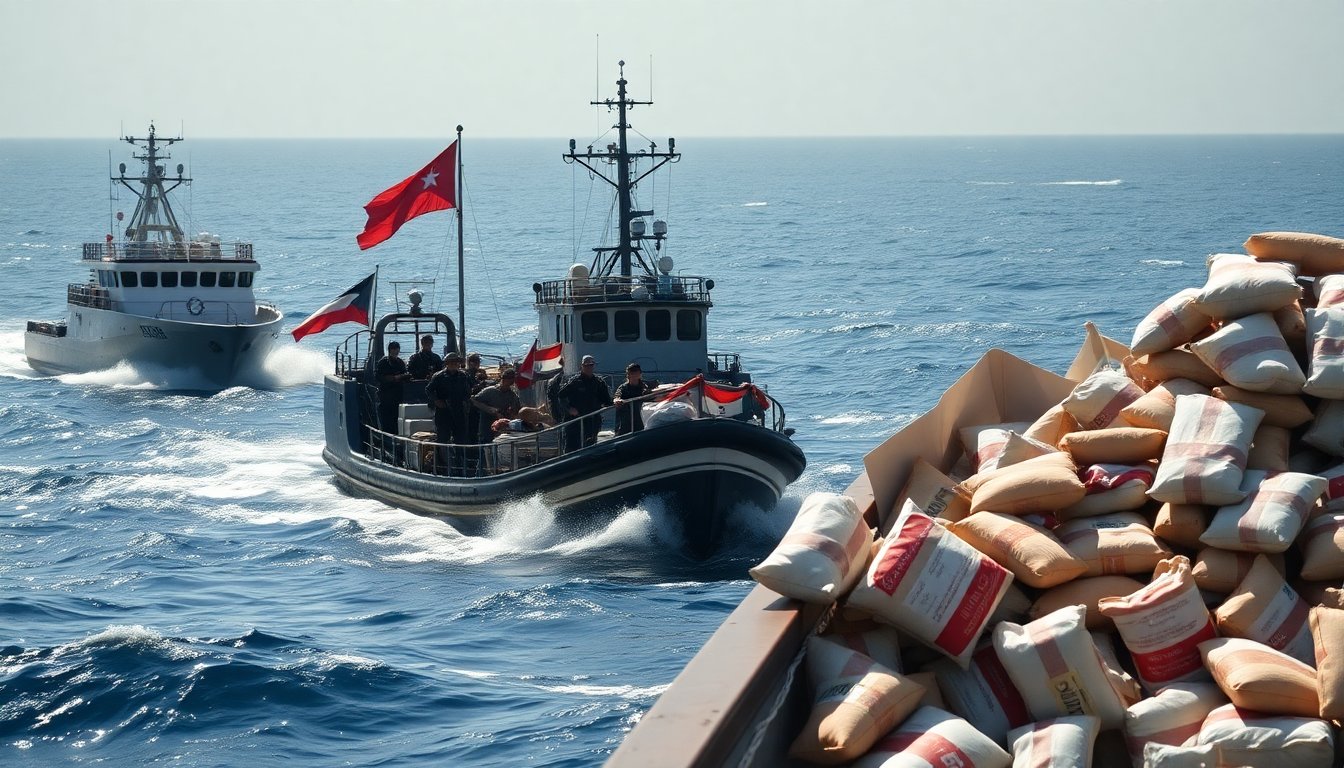Table of Contents
In a significant escalation of ongoing tensions, the Israeli Navy intercepted a flotilla that was on its way to deliver humanitarian aid to the besieged region of Gaza. This operation led to the detention of hundreds of pro-Palestinian activists, prompting outrage and condemnation from various organizations and activists worldwide.
The flotilla, which had garnered considerable attention in the weeks leading up to its launch, symbolized solidarity with the people of Gaza, who have faced a severe humanitarian crisis due to ongoing conflicts. The vessel carried not only supplies but also the hopes and aspirations of many who seek to raise awareness about the plight of the Gazan populace.
The interception of the flotilla
As the ships approached Gaza’s territorial waters, they were swiftly met by the Israeli Navy, which had been closely monitoring their movements. This interception marked the culmination of a weeks-long standoff, highlighting the complexities surrounding maritime access to the area. The Navy’s presence underscored Israel’s ongoing commitment to regulating the flow of goods and individuals in and out of Gaza.
Details of the operation
The naval forces executed a well-coordinated operation to board the vessels. Reports indicate that the activists on board were initially hopeful but were soon overwhelmed by the military presence. The interception served not only as a physical barrier but also as a stark reminder of the geopolitical tensions that persist in the region.
Following the boarding, the activists were detained and taken into custody. Many were members of various international organizations advocating for Palestinian rights, complicating the narrative surrounding the incident. The global response has been swift, with calls for the immediate release of those detained and a renewed focus on the humanitarian situation in Gaza.
The reaction to the interception
The interception of the flotilla has elicited a wide range of responses from activists, governments, and humanitarian organizations around the world. Many view this action as a violation of international law and an infringement on the right to deliver aid to those in need. Humanitarian organizations have expressed deep concern over the impact this incident may have on future aid efforts in the region.
Global implications
International reactions have ranged from condemnation of the Israeli government’s actions to calls for dialogue and peace. Various leaders have urged restraint and emphasized the necessity of protecting humanitarian efforts in conflict zones. This incident serves as a reminder of the delicate balance that exists in international relations, particularly in areas fraught with conflict.
Furthermore, the event has reignited discussions surrounding the blockade of Gaza, a contentious issue for over a decade. Activists argue that the blockade restricts access to essential goods and contributes to the ongoing humanitarian disaster in the region.
Looking ahead
This incident has raised critical questions about the future of humanitarian access to Gaza and the role of international actors in facilitating aid. As geopolitical tensions persist, the plight of the Gazan people remains at the forefront of many activists’ efforts, who are determined to advocate for their rights and needs despite the challenges posed by military interventions.
The interception of the flotilla by the Israeli Navy has temporarily halted this particular effort to deliver aid. However, it has sparked a renewed commitment among advocates and organizations worldwide to address the crises affecting Gaza. The struggle for humanitarian support continues, and the global community remains watchful as developments unfold.


